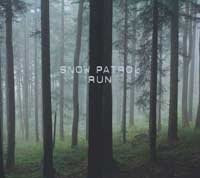
Posted by
Bill Peters March 05, 2008 17:15PM
Lori Bindig, a UMass Communications doctoral student, has published a critical analysis of Dawson's Creek. She talks about why that matters.
In 1998, before Katie Holmes got strung out on Tom Cruise and Scientology and
James Van Der Beek went on to get older and look totally different, Lori Bindig was in high school. In homeroom one morning, a friend brought in a J Crew catalog that had an ad promoting a show called Dawson's Creek.
"Look at this show!" her friend said.
Bindig initially thought Dawson's Creek would be just another 90210-esque young-adult sitcom, glorifying high school drama without any sense of perspective beyond senior year. She'd watched more Murder, She Wrote and Law & Order than she ever did MTV, but more and more, she found herself watching and taping Dawson's Creek. In college in Connecticut, she'd have her mom tape episodes if they were blacked out due to Huskies games. It became a frequent point of reference in class discussion -- her 'Dawson's Creek examples' as she refers to them at one point in our interview. She still has a poster of the show in her room.
Then she ended up writing her Master's thesis about the show, coming to UMass to work with Sut Jhally (whose documentary "What a Girl Wants", she said, was pivotal to her academic work), and publishing "Dawson's Creek: A Critical Understanding" on Lexington Press in October, 2007.
Currently,
"Dawson's Creek: A Critical Understanding" has one review on Amazon, part of which reads: "I do not recommend reading this book unless you are a hard core feminist and not a fan of Dawson's Creek." Maybe that's more of a comment on the reviewer than the book itself. Many in the academic community - and certainly the rest of the country - think of the young-adult sitcom as unworthy of academic study. It's entertainment, let's keep it that way. UMass, however, is somewhat progressive in that they let students near primetime for academic purposes at all: while TV occupies so much off-time for so many, very few spend any time, if at all, thinking about their entertainment critically.
Of course, with time, any show or book - regardless of content - becomes cultural commentary. Beowulf might be studied and valued more as an artifact in classrooms, but that artifact is essentially a 1,000-year-old action movie; it was entertainment. If Season 5 of Dawson's Creek is all that's left of us in 1,000 years after Big Oxygen goes bankrupt, would it take on similar archaeological significance?
Once a music theater major, Bindig is vocal, bubbly, yet articulate when I meet her at the UMass grad lounge. Our (slightly abridged, though still extensive) interview is below.
I'm wondering if you can talk about Dawson's Creek a bit in context and maybe how it elaborated or explored more sophisticatedly where shows like 90210 or Party of Five didn't? Dawson's Creek is part of that whole teen genre that I think really started with 90210. And I've been going back and looking at other shows, and Dawson's Creek is really interesting in that from the second season on, it did have a gay character as a central character. And it did give a more nuanced approach to sexuality, in terms of homosexuality. But even with that, it's limited. It's phenomenal because the show had the first homosexual kiss between two men on television that they showed full-facial, I suppose.
But they also make a lot of the show about the other characters accepting Jack - who's the gay character - or, he's sort-of lost, and he becomes found by shooing gay activism and the gay community for the most part, or if he is found, it's on a very individual level more than a social level. And that's great in some ways; I don't want to knock the show completely. They did some things very positively, but overall, it was very narrowly defined, what he could and couldn't do. We didn't see this radical gay activist who could be the center of a show and be in these loving sexual relationships.
Joey is interesting in terms of class and gender issues because she was lower class, but she was still accepted and fully integrated by the good characters. The bad characters looked down at her, which is a very traditional thing, but it was also very, very conservative. Joey pulled herself up by her bootstraps; the reason why she was poor was because of a dysfunctional family. But at least, for 90210, for the most part, most of the characters were very rich, same with The O.C.. And they had their outliers; like Joey Potter, they pulled themselves up by the bootstraps. There wasn't that analysis of other structures that might be the reason for why they're in poverty.
One of the things you said in the press release that was kind of interesting was that the show had a few radical moments, but that overall, it was a very conservative show. Can you talk a little about how conservatism plays a role in the show?
I actually thought, going into Dawson's Creek, I would find some stronger positive roles, especially in terms of gender. But then, once I started looking, I noticed they would do lip service: Joey's really smart; she's going to an Ivy League school. But then she's relying on Dawson to pay for it. Or the whole show ends up being centered on which boy does she choose - that very traditional, very stereotypical 'she needs a man' kind of thing.
She also ends up going back home, doesn't she?
She ends up going back home, feeling comfortable there, as opposed to going out to a big city, going out on her own. She's always connected to these ties. Which are great, I'm not saying people shouldn't be close to their roots. But in reality, there's a lot of reining in there.
One of the reasons why I think this happens - not just on Dawson's Creek, but a lot of TV shows - isn't because there's a room full of rich white guys smoking cigars saying 'We're creating this conspiracy,' but I think it's the structure of media in a capitalist society. The programming isn't the real content, the commercials are the real content, and the programming is just there to get us to watch commercials and then buy the toothpaste - that really reins in the type of content that we see.
If we saw Joey having these really difficult struggles - there's one episode where she competes in a beauty pageant. She's the tomboy, but when she competes in the beauty pageant and dons lipstick and eyeshadow Dawson realizes he's in love with her. And there's a moment where she's critical and she's like 'Oh Dawson, I'm glad you finally fell in love with me but it's just lipstick, it's just hairspray.' But if she really went on with that, and just went back to her ways, there's no way the show would have stayed on the air, because the sponsors would have said 'It's just lipstick and eyeshadow?! No, we need young girls to feel insecure to buy our products!'
Whether or not there's explicit relationships between advertisers and TV shows - which of course there are, with product placement and integrated marketing - that sort of thing really plays a huge part in the content that we see. I think it's the reason why it wasn't until 2001 that we saw two gay characters kissing, because that would turn off a particular fan base. Even Dawson's Creek shot two versions of [that scene] because they didn't know what version they were going to use.
A couple of years ago, I was at a communications grad conference. Afterwards, a bunch of us were at lunch, and there was a grad student who was talking about Britney Spears. And she was talking about the intense, obsessive coverage that she gets, and that with that coverage, a value system sort of emerges from that, something that can be used as a frame of reference for morality, for what to do and what not to do in your own life. Most of us, when they see Britney on the news, they think: trash. But do you see any kind of value system that emerges in that more TMZ / paparazzi kind of coverage?
I do think that comes into play. My book talks exactly about this. It's called social cognitive theory, and how people use different media clips and different examples to form their values. While people wouldn't necessarily acknowledge that they do that, I think they definitely use celebrities or media as a frame of reference, because you just can't help it.
For girls in particular, the more I watch more teen dramas, there are a lot of morality lessons there for young women about drinking, about drugs, about sex. Whereas for boys, there aren't as many morality lessons. Take the Britney Spears example, even with celebrities in today's culture, you can see those morality lessons play out in a very gendered way that's very interesting.
Do you think that in a lot of young-adult shows that male characters are more rewarded for taking chances than women are?
I certainly think so. Of course there are always exceptions. There are characters that will break the mold. But you have to look across a wide view and say 'Okay, is this one exception to the rule, or are things changing in the media?' Within the teen genre, a lot of times we have females only concerned about their love interests, females competing with each other, sometimes choosing not to take chances due to romantic interests.
Or when they do take a chance it's only because of a romantic interest. For example, in Dawson's Creek, Joey has the opportunity in the first season finale to go to France. But she chooses not to because she wants to stay and be with Dawson. In the same series, three seasons later, the fourth season finale, Dawson has an opportunity to go to a summer program, a film program at USC. And he decides to go despite Joey telling him she loves him.
In a show like Felicity the whole premise of the show revolves around how Felicity changes her life plans to go to New York to follow this boy in high school she barely even talked to. Even in Felicity there's an option - there's Ben, the boy she follows, there's Noel, the R.A. who's in love with her. And Noel is given the opportunity to go to Germany for a summer internship; he's not sure about it, he wants Felicity to go with him, Felicity ends up choosing Ben. But then, Noel ends up still going to Germany. He doesn't stay home and mope. I'm pretty sure if it was written another way, Felicity would've stayed home. She did end up taking an art internship a couple of semesters later, but she still sort-of had Noel, the other love interest, there to catch her and be there. In those sorts of situations we still see these very traditional, very stereotypical gender roles.
A lot of times, these shows are dismissed as being just there for edginess or just being inherently contrarian. Do you find that a lot of young adult dramas - even the ones today -are more conservative than people think?
I would say they're probably more conservative than people think, if we think of conservative not in Democrat and Republican terms, but if we think about it in terms of how progressive we've become in terms of equality and things of that nature.
In Gossip Girl, for instance, which is wildly popular, we see two best friends competing over a love interest. Not so much in the show yet, although we see backstabbing, do-whatever-it-takes to get the guy, those things. But even in this young, very gentle character, we see her being ashamed of her middle class, bohemian background, and trying to do whatever it takes to hang out with the cool, rich kids.
Maybe that's a very normal narrative, of people desiring to be a part of something. But when we see that she so readily adopts a consumerist mentality, a capitalist mentality, and a conniving, do-whatever-it-takes mentality. Some people would say, 'You're looking too deep,' but you don't really have to go that deep to see those sort of themes.
[...] Even when we pathologize people in teen television shows, it's always from a very individual stance. It's never a social stance like, 'What might make this girl want to be bulimic, what makes her mean and competitive?' We just see, 'Oh, her mom,' in the traditional bad mother sort of role. Instead of 'let's look at other social reasons for this.' Even something as small as the individual vs. the social, it's something that really points to how progressive or conservative a show is.
A lot of people think of shows like Dawson's Creek and the O.C. as being inherently below critical analysis - they're always there for entertainment. Did you worry about this project becoming too forced or frivolous? Or was that an easy thing to navigate?
No. This was another reason why I wanted to come to UMass. That cultural criticism is very accepted here, and it's deemed very important. Some schools are based more in the 1960's school of communication as a social science. [...] A lot of people would ask me what's your Master's Thesis on. And I'd tell them it was on the TV show Dawson's Creek. Even family members would say, "You're doing what? That's school?" I was very lucky that my parents took the approach of 'Hey, more power to you.' It was a running joke with my friends, like, 'Oh, Lori's gonna go do research now!' by sitting home and watching Dawson's Creek.
I think that, throughout even the general public, there's a conception that cultural studies or the study of popular culture isn't rigorous. When, actually, it's very theoretically based; you have to know a lot of different traditions, in terms of sociology, psychology, any sort of gender / race theory. But I think a lot of people think it's just entertainment. The scholar George Gerbner, now deceased, put it wonderfully when he said 'People's strong sense of values and their worldviews were once shaped by the schools, by the home, and by the church. Now, it's media.' And people spend more time with media than anything else except sleeping and working.
Is there something in the academic culture that happens within the general discussion about pop culture that doesn't exactly ingratiate itself to the rest of the academic community?
In the academic world, people that teach pop culture, by the nature of it being pop culture, I think that a lot of students would gravitate to that because they think it's not a lot of work, it'll be fun, some combination of that. The pop culture courses, you could offer three each semester and each one would be filled. And I think there can be a slight bit of professional jealousy over that. While the study of pop culture isn't that new - it started seriously in England in the 1960. So it's not that new, but I think those rooted in that deep tradition really question it, and say that it's not rooted in communication, maybe it should be in a film program, maybe in the humanities. Communication is such a hybrid, that I think that's where [the field] becomes problematic. I hate to be pessimistic, I do think that there is an aura of anti-intellectualism in our culture, and there's a real critique that people who think [pop culture studies are] just entertainment have of academics; that we're just navel-gazing. However, with people who are in American Studies, cultural studies, who are amenable to pop culture, they're all for it.
This is sort of a question about just being a fan of any show. I just finished watching The Sopranos on DVD two weeks ago. It's weird when the backlog of a show is already there, because that's what really allows you to obsess over it in a way that's much different as when the episodes were being originally released. You know, you start looking up information about the show in Wikipedia, or looking up the Sopranos cast members on iMDB. Maybe that's my own problem, but it's made me think about Journey's "Don't Stop Believin'" a bit more and that band differently. Do you reach a saturation point with something like this? Can a show run out of things to give you?
I think at some point, maybe somewhere down the road, you could eventually maybe start repeating yourself. Even when you an analysis of a TV show in a cultural context, and even just talking about Journey's "Don't Stop Believin'" on the Sopranos, and then Hillary Clinton's video based on that, it just seems impossible to reach that saturation point. I think intertextuality is something that, as a fan, I happen to love. But as a scholar, it's more important to explore. Because our media is becoming more and more intertextual.
[...] I think a lot of people think that you're just studying [your subject] in a vacuum, that you're looking at just these shows and nothing else. But good cultural reseach puts it in the context of the time it appears, the media structure, even the FCC regulations at the time are really important - even politically, economically, how the country's doing at the time. You take that all into account.
Source :
http://blog.masslive.com/localbuzz/2008/03/narrative_and_not_being_frivol.html
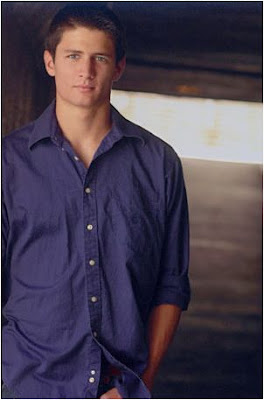
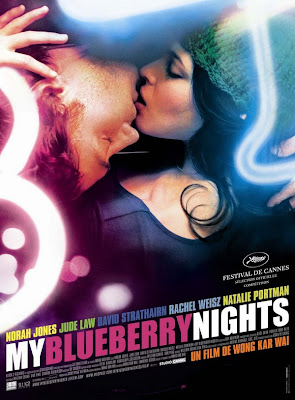


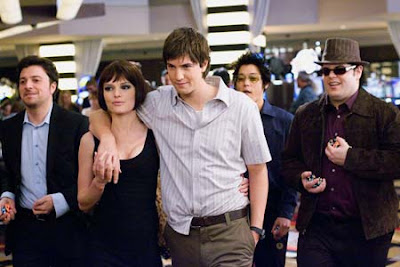

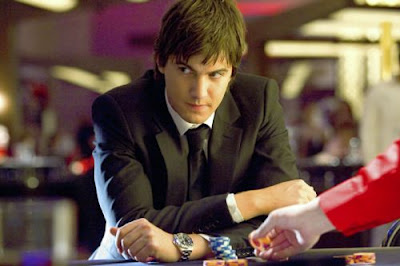
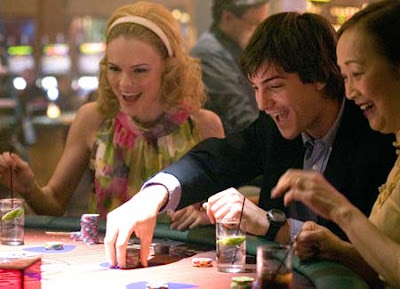
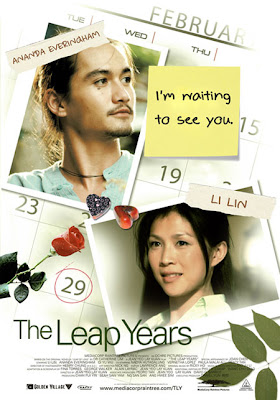 I finally managed to miss the movie I sure will like and have always wanted to see!!!
I finally managed to miss the movie I sure will like and have always wanted to see!!!